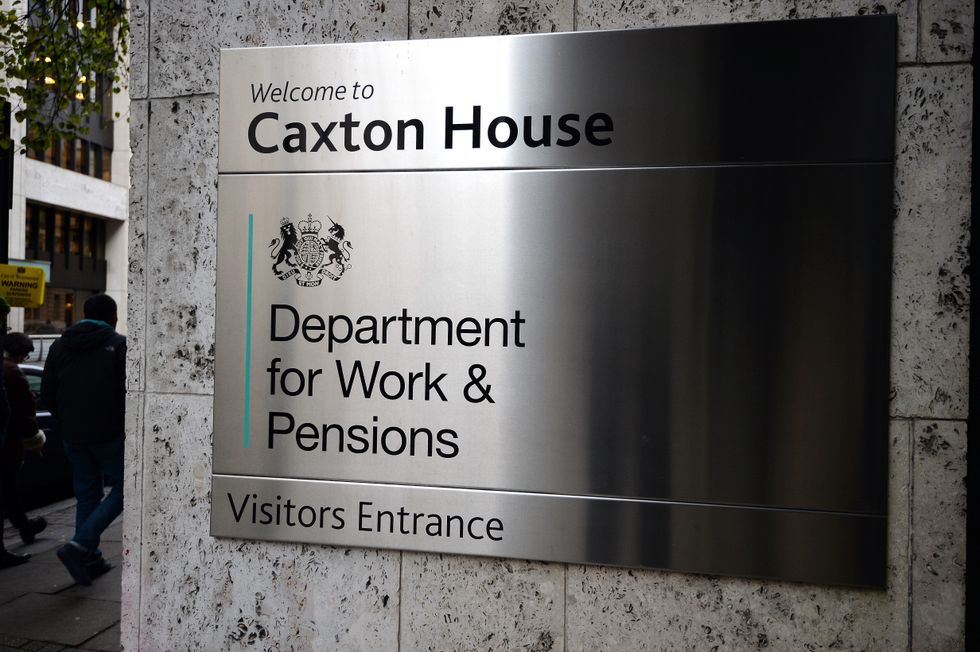The link in the message leads to a scam website with UK Government branding asking for personal details
GETTY
The link in the message leads to a scam website with UK Government branding asking for personal details
Don't Miss
Most Read
Trending on GB News
The Department for Work and Pensions (DWP) has issued an urgent warning to millions of benefit recipients about fraudulent text messages attempting to steal personal and financial information.
The alert targets all those receiving DWP benefits such as state pension, Universal Credit, Personal Independence Payment (PIP), Attendance Allowance, and Jobseeker's Allowance (JSA).
With the cost of living crisis and festive season approaching, scammers are increasingly attempting to impersonate the DWP through text messages, putting vulnerable benefit recipients at risk.
The warning comes as fraudsters deploy sophisticated tactics to deceive people into sharing sensitive details through fake official-looking messages.
In a statement shared across Twitter and Facebook, the DWP warned: "Be aware of scam text messages claiming to be from @dwpgovuk.
"Always be careful about links and never share personal or financial details. Only engage with trusted official sources,"

The DWP has urged anyone receiving suspicious messages to report them through the GOV.UK website or Action Fraud UK
PAThe DWP has urged anyone receiving suspicious messages to report them through the GOV.UK website or Action Fraud UK @actionfrauduk.
Recipients can find guidance by searching for 'avoid and report internet scams and phishing' on the official government portal.
Previous scam attempts have specifically targeted people with fake messages about 'unclaimed cost of living payments' and the Warm Home Discount.
These fraudulent messages often include direct links for making claims - a method the DWP has confirmed it never uses.
According to Trading Standards, there have been reports of scam text messages, saying people might be eligible to receive a "UK Government living expenses subsidy" for 2023-2024.
They are asked to click the link in the message within 24 hours to claim the subsidy, reports suggest.
The full text reads: "We will begin disbursing living expenses to help you get through the winter. If you receive information proving that you are eligible to apply, please update your information in the link as soon as possible to claim it.
"We will close the application deadline tomorrow. Please apply as soon as possible. If you fail to receive it after the time, we will reallocate the funds to other citizens in need."
Scammers are particularly active during the current cost of living crisis, using what are known as 'impersonation scams' to pose as official Government entities.
The fraudsters create convincing-looking messages in an attempt to trick recipients into clicking on links or sharing sensitive information.
Universal Credit claimants are typically contacted by their Work Coach through their online journal, rather than via text messages.
The DWP advises that anyone unsure about a text message claiming to be from a DWP department, the Scottish Government, Social Security Scotland, or HM Revenue and Customs should call these organisations directly to verify.
The latest warning follows previous alerts about the misuse of DWP's online services, highlighting the DWP ongoing efforts to protect benefit recipients from fraud.
The DWP has also recently emphasised that it "does not publish any applications for download to your mobile devices or PCs".
Claimants are reminded to remain vigilant and never share personal or financial information through unsolicited messages or links.







